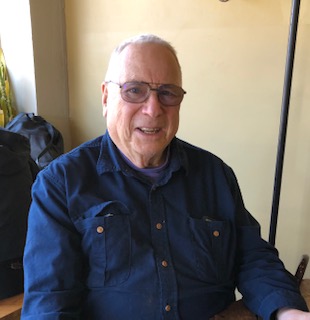Opinion: Should We Agree with Our Elected Officials?

Photo: Jernej Furman / Flckr.com. Creative Commons

Should we agree with our elected officials? If I were to ask the question in Amherst about Donald Trump, I imagine that the response would be a pretty overwhelming “NO!” And yet three times within the past week we have heard prominent Amherst residents and officials suggest that we should support elected officials because they are elected officials. Sometimes that statement is embellished by the word democratically.
So let me state categorically that we owe our elected officials gratitude and respect for their service, which is often at considerable personal cost. But we never owe them our agreement or support. That is a fundamental tenet of democratic institutions as well as an uncomfortable comment upon our local governance and Home Rule Charter.
Twice, we have heard the Town Manager counsel the Town Councillors not to interfere in the library issue because the Library Trustees are elected officials. At the special Town Council meeting on rescinding library funding we heard a prominent supporter of the Trustees’ plan for the library refer to opponents of that plan as “minority activists.” I suppose I am one of those, and as I enter my 93rd year I am tickled to be considered an activist and am, as always, quite willing to be in the minority as long as I believe my position to be in Amherst’s best interests. And then on Wednesday I read in Nick Grabbe’s column about “Amherst’s Original Sins” in the Amherst Current that “Minority Rule” was one of those sins. Nick wrote about the great impassioned debates in recent Amheerst history – the parking garage, the new elementary school proposed for the Wildwood site, and the current library expansion and demolition proposal. (For the record, I supported a larger garage, I supported the school committee plan for Wildwood School although I didn’t think it was a good plan, and I have steadfastly opposed the plan to enlarge the library on its Amity Street site.) Nick correctly notes that Town Meeting’s noisy though hardly unanimous opposition to each of these projects was a major contributing factor to its demise which, if I were writing Nick’s piece, I would have listed as a major original sin.
It is true that politics in Amherst have dramatically changed as a result of those three conflicts, but that change has been away from, not towards, democracy. Many residents, including former members of elected committees as well as many whose land holdings give them outsized influence in town matters have moved to exercise control over those officials whose elections they describe as ‘democratic.” The law allows them to do this, and the “consultants” they hire encourage them to do this. This ought to be a matter of concern for Amherst voters.
But the greater concern – for Amherst and for the United States – is .that democracy depends upon disagreement. Of course we should agree with our elected officials when we think they are right, and we do. Town Meeting did most of the time. Membership in an “activist minority” is open to all and almost all avail themselves of it at some point, including our elected officials.
But at a time when checks and balances and separation of powers appear to be under threat both nationally and locally, in addition to showing gratitude and respect to our elected officials, let’s do the same for our residents who, also, at considerable personal cost, disagree with our elected officials and provide an essential counterbalance to their tendency to want to control. Remember Lord Acton: Power tends to corrupt.
Michael Greenebaum was Principal of Mark’s Meadow School from 1970 to 1991, and from 1974 taught Organization Studies in the Higher Education Center at the UMass School of Education. He served in Town Meeting from 1992, was on the first Charter Commission in 1993, and served on several town committees including the Town Commercial Relations Committee and the Long Range Planning Committee.
